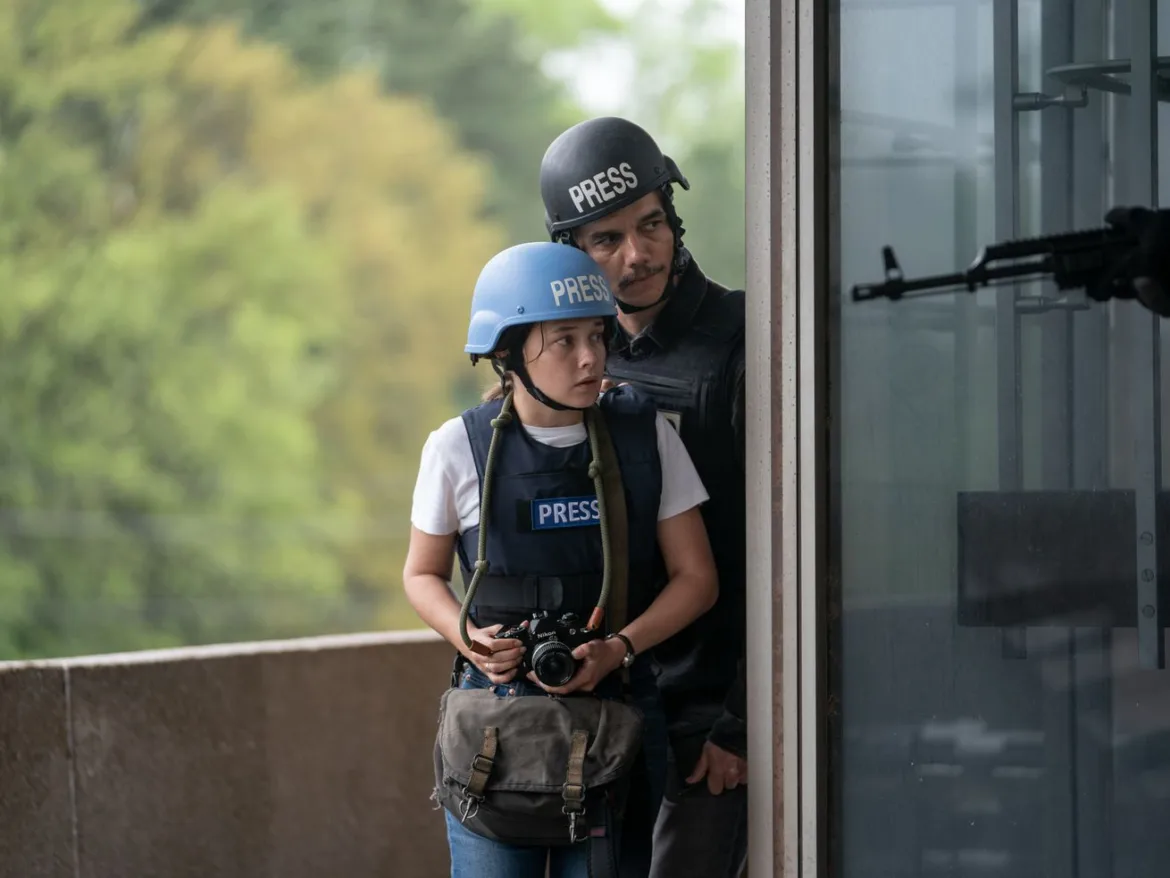You might think a movie about a second American civil war would be a thinly veiled Trump story. It’s not — and it’s better for it.
You might think the new movie Civil War is a warning about America’s deepening political divide. The film’s trailer certainly suggests so, and director Alex Garland seemingly confirmed that was his intent in a recent interview with the Atlantic.
For me, a writer who has written a book on democratic decline, this marketing set off major alarm bells.
While the United States faces very real threats from extreme polarization and rising political violence, a modern repeat of the Civil War is basically out of the question (especially the film’s version, in which a rebel alliance led by Texas and California confront the federal government). Trying to use such a war to examine how American polarization could collapse our democracy would almost certainly be a doomed enterprise.
Thankfully, Civil War is not the film I was led to believe. The movie begins near the end of the conflict, providing little context about how things got so bad in fictional America. There are stray hints — the president (Nick Offerman) is in his third term and has disbanded the FBI — but nothing that could help the viewer understand why the United States collapsed into bloodshed. Contrary to marketing, and perhaps even the director’s intent, Civil War has virtually nothing to say about real-world American politics.
But this doesn’t mean the film is a failure — far from it. Once you understand that Civil War isn’t about what you think, you can appreciate it for what it actually is: a searing meditation on what happens when political orders collapse and violence takes on a sinister logic of its own.
In doing so, it channels some of the best modern academic research on violence in civil wars.
This is your brain on violence
Civil War tracks a group of four reporters as they race from the (relative) safety of New York City to Washington, DC, to cover the fall of the president: The combined forces of California and Texas are knocking at the Capitol’s doorstep.
Yet there’s no real sense of place or specificity in this narrative. With the exception of a rebel base outside Charlottesville, the towns and cities they pass through have no names. The violence the reporters witness on the road is horrific — we’re talking mass graves, suicide bombings, and torture — but it generally has no clear political motivation or higher purpose.
/cdn.vox-cdn.com/uploads/chorus_asset/file/25387438/Civil_War___First_Image.jpg)
A24
In one scene, a sniper opens fire on the reporters’ car, forcing them to take shelter beside two soldiers he’s also attacked. When the reporters ask the soldiers which side everyone is on, they scoff — explaining that he’s trying to kill them, and that’s all that matters.
That scene clarifies what the movie is really about: not how political order collapses into civil war, but what happens to a society after it does.
Civil War presents a narrative where war takes on a logic of its own. For some, the need to survive pushes them to act in ways they never would have contemplated otherwise. For others, the collapse in order creates opportunities to act on their very worst impulses — best dramatized in an unforgettable scene in which a bigoted soldier (Jesse Plemons) cruelly interrogates the main characters at gunpoint.
Under such conditions, social trust collapses altogether; faith in both institutions and other people can’t survive.
Civil War’s treatment of journalism basically fits this theme. The movie’s reporters, led by steely photojournalist Lee (a fabulous Kirsten Dunst), are generally decent people and stellar professionals. But in a world where no one trusts anyone, a truly neutral institution like journalism has no place. Without any legal system or supreme power to appeal to, they’re at the mercy of whatever armed faction they come across — most of whom don’t trust journalists any more than anyone else.
In conditions of social breakdown, violence consumes all of what makes a society work.
What a fake civil war tells us about real ones
Civil War’s grim vision reminded me, more than anything else, of an academic book: The Logic of Violence in Civil Wars by Oxford professor Stathis Kalyvas.
The book, a modern classic in the literature on civil conflict, argues that most people overestimate the degree to which patterns of violence in civil wars are driven by ideology or emotions run amok. Instead, Kalyvas argues, individual decisions are often made based on calculations of rational self-interest — starting with survival.
Kalyvas’s treatment of the relationship between violence and civilian behavior is particularly noteworthy.
As we know from American experiences in Iraq and Afghanistan, winning the support of the local civilian population is critically important in determining who wins a civil war. Drawing on data from the 1940s Greek Civil War, Kalyvas argues that civilians make decisions about cooperation based primarily on perceptions of who is in control of the territory in which they live. Basically, they’re most likely to cooperate if they think that side will have the power to keep them safe and advance their other interests.
Civilian cooperation then shapes how combatants use force, as informers tell them where their enemies are hiding or who in the civilian population supports the opposing side. How combatants act on this information in turn shapes civilians’ views, affecting their future decisions to cooperate or not. Violence is, in Kalyvas’s language, a “joint process”: Who lives and who dies is determined by the interplay of civilian and combatant actions, all rooted in perceptions of rational self-interest.
This is basically how the world in Civil War works. Characters make choices not about ideology or partisanship, but about how best to advance their interests in a country defined by who’s trying to kill them and who isn’t. I can’t recall a single scene where anyone makes an ideological statement about the nature of the American civil war and why they’re fighting it.
Such a film has little to say about contemporary American politics. But the imagery and places may help American audiences connect more easily to the subtler story it’s actually telling: about how people in real-life civil wars make life into hell for the people caught up in them.
It is less a film about political polarization, or even the headline-dominating wars in Gaza and Ukraine, than one about the long and bloody counterinsurgency wars that defined the war on terror era.
In that respect, Civil War should make Americans think less about our own contemporary problems and more about the suffering we so recently inflicted on others.
This story appeared originally in Today, Explained, Vox’s flagship daily newsletter. Sign up here for future editions.



